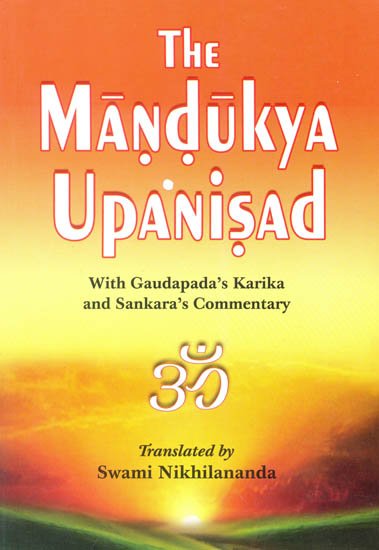Mandukya Upanishad (Gaudapa Karika and Shankara Bhashya)
by Swami Nikhilananda | 1949 | 115,575 words | ISBN-13: 9788175050228
This is verse 2.17 of the Mandukya Karika English translation, including commentaries by Gaudapada (Karika), Shankara (Bhashya) and a glossary by Anandagiri (Tika). Alternate transliteration: Māṇḍūkya-upaniṣad 2.17, Gauḍapāda Kārikā, Śaṅkara Bhāṣya, Ānandagiri Ṭīkā.
Mandukya Karika, verse 2.17
Sanskrit text, IAST transliteration and English translation
अनिश्चिता यथा रज्जुरन्धकारे विकल्पिता ।
सर्पधारादिभिर्भावैस्तद्वदात्मा विकल्पितः ॥ १७ ॥aniścitā yathā rajjurandhakāre vikalpitā |
sarpadhārādibhirbhāvaistadvadātmā vikalpitaḥ || 17 ||17. As the rope, whose nature is not really known,, is imagined in the dark to be a snake, a water-line, etc., so also is the Ātman imagined (in various ways).
Shankara Bhashya (commentary)
It has been said that the imagination of Jīva (the Jīva- idea) is the source of all (other) imaginations (ideas). What is the cause of this Jīva -idea? It is thus explained by an illustration:—It is found in common experience that a rope, not known as such, is imagined, in hazy darkness, as snake, water-line, stick or any one of the many similar things. All this is due to the previous absence of knowledge regarding the real nature of the rope. If previously the rope had been known in its real nature, then the imagination of snake, etc., would not have been possible, as in the case of one’s own fingers.
Similarly, Ātman has been variously imagined as, Jīva, Prāṇa and so forth1 because It is not known in Its own nature, I.e., pure2 essence of knowledge itself, the non-dual Ātman, quite distinct from such phenomenal characteristics indicated by the relation of cause and effect, etc., which are productive of misery. This is the unmistakable verdict of all the Upaniṣads.
Anandagiri Tika (glossary)
1 So forth, etc.—e.g., the ideas of agent, enjoyer, etc.
2 Pure, etc.—i.e., without birth, death, form, etc.
